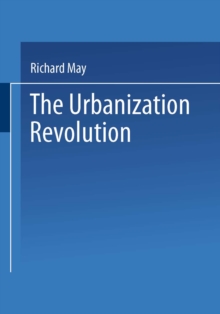
New Communities for Urban Squatters : Lessons from the Plan That Failed in Dhaka, Bangladesh PDF
by C.L. Choguill
Part of the Urban Innovation Abroad series
Description
This is a book on the interrelatedness of planning and implementation, on how policymakers and planners can be more effective in solving problems of providing new homes and settlements for urban squatters in developing countries.
It treats a subject which in this year of publication, The United Nations International Year of Shelter for the Home- less, has attracted global interest and concern.
New Communities for Urban Squatters helps us to understand the ways in which the planning process is being redefined as it moves into the mainstream of urban change and political decisionmaking.
Resettlement of squatters in new urban communities is one option open to planners to meet the housing and settlement needs of low-income resi- dents of Third World cities.
In too many cases, however, the plans have failed to achieve their objectives for reasons which could have been foreseen and dealt with at the outset.
For resettlement and new community building to be a feasible solution, this book argues, plan implementation as well as plan preparation must be considered as basic and inseparable parts of the planning process.
Success depends on getting right the five fundamental aspects of planning which have Third World-wide significance: appropriate organizational structures and coordination, finance, tech- nology, cultural understanding, and public participation.
If not, failure is sure to follow.
Information
-
Download - Immediately Available
- Format:PDF
- Publisher:Springer US
- Publication Date:06/12/2012
- Category:
- ISBN:9781461318637
Other Formats
- Paperback / softback from £44.99
Information
-
Download - Immediately Available
- Format:PDF
- Publisher:Springer US
- Publication Date:06/12/2012
- Category:
- ISBN:9781461318637










